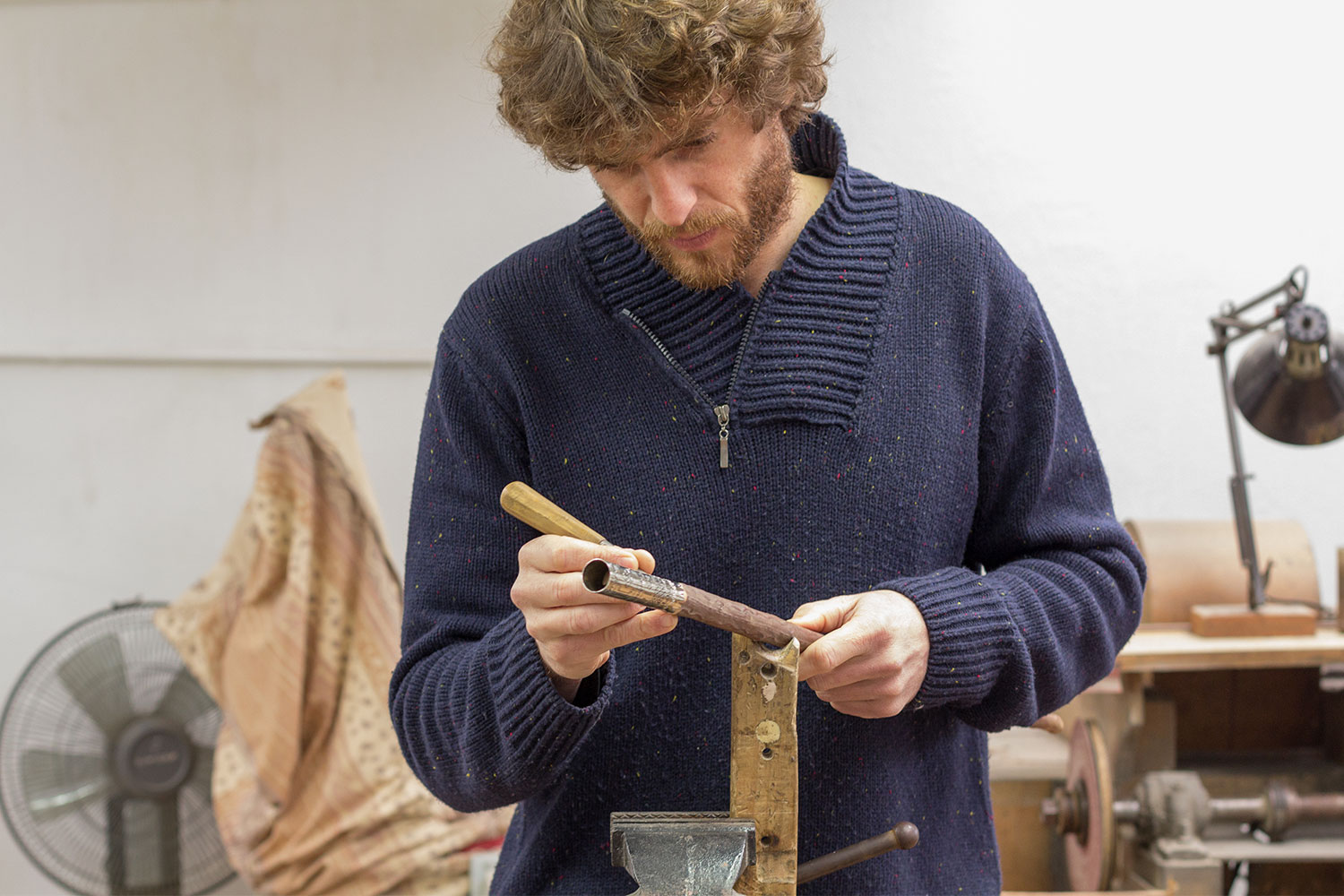
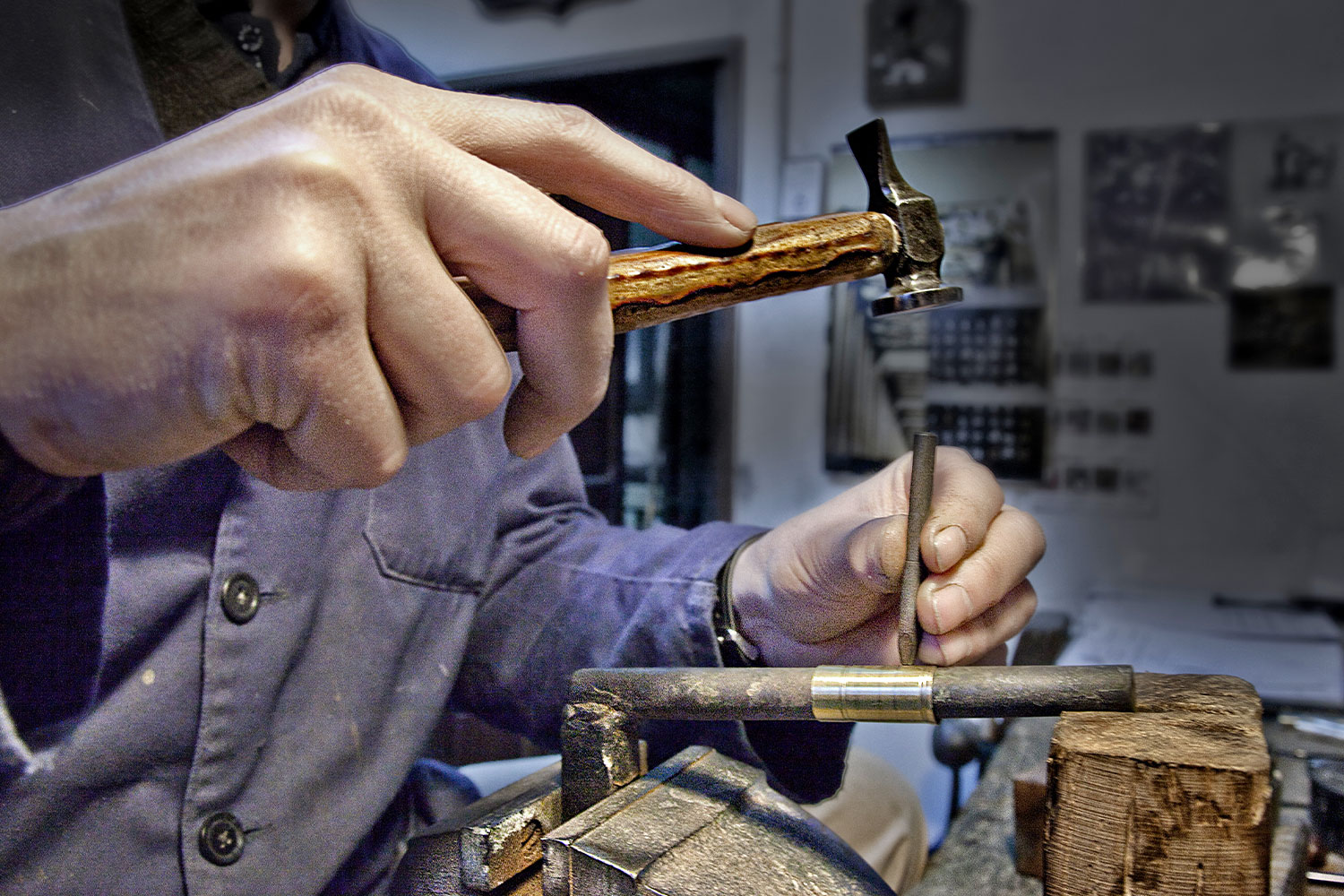
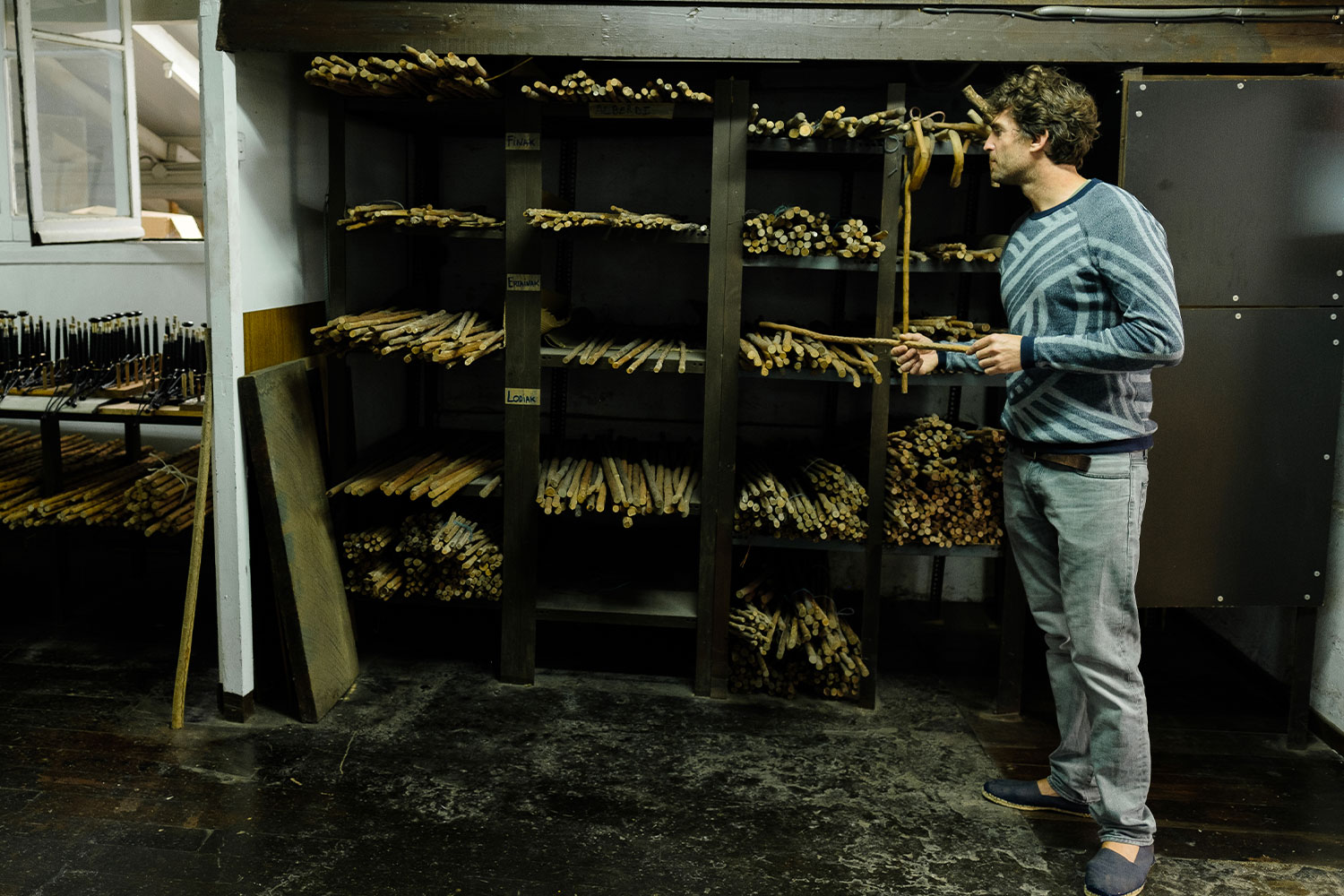
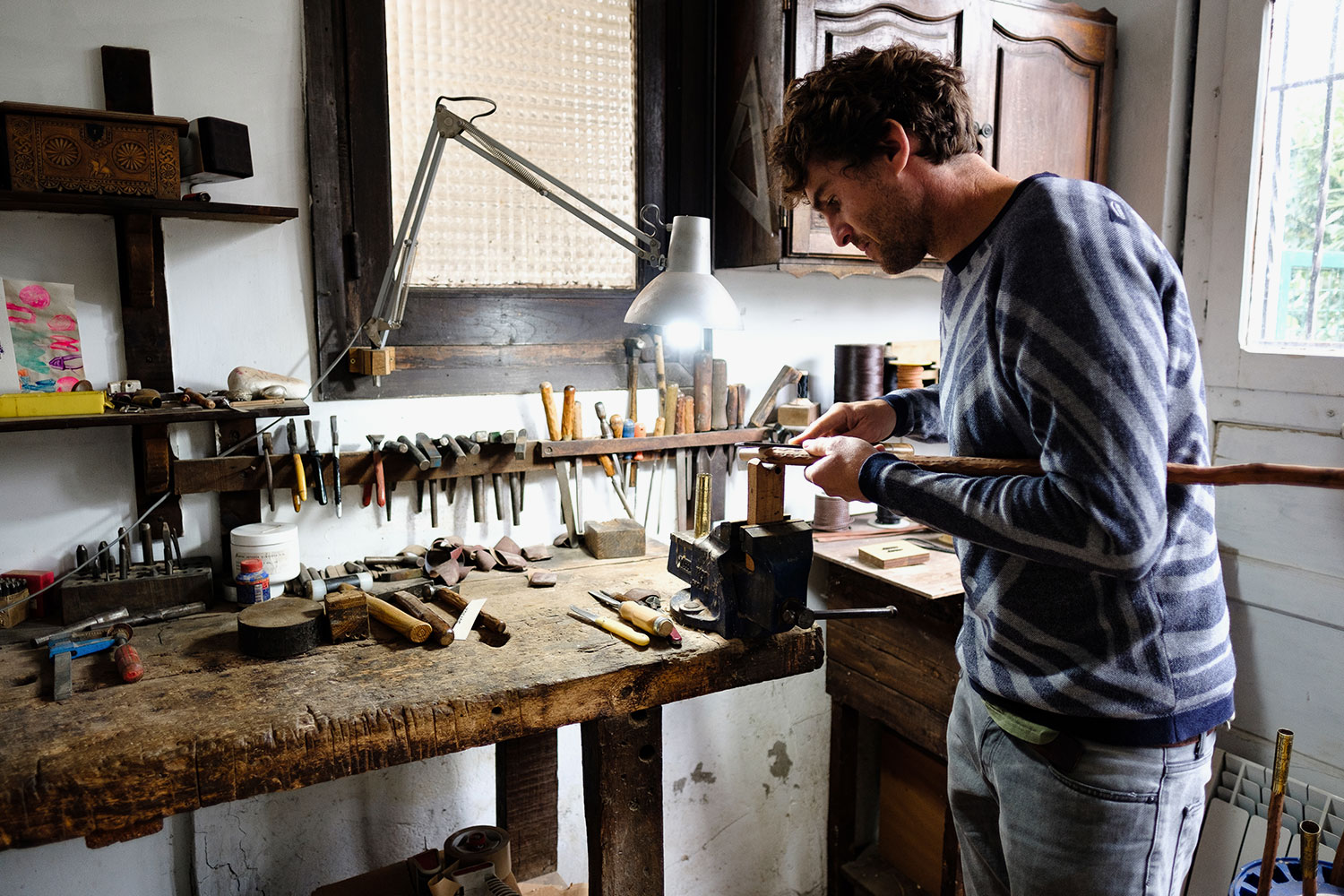
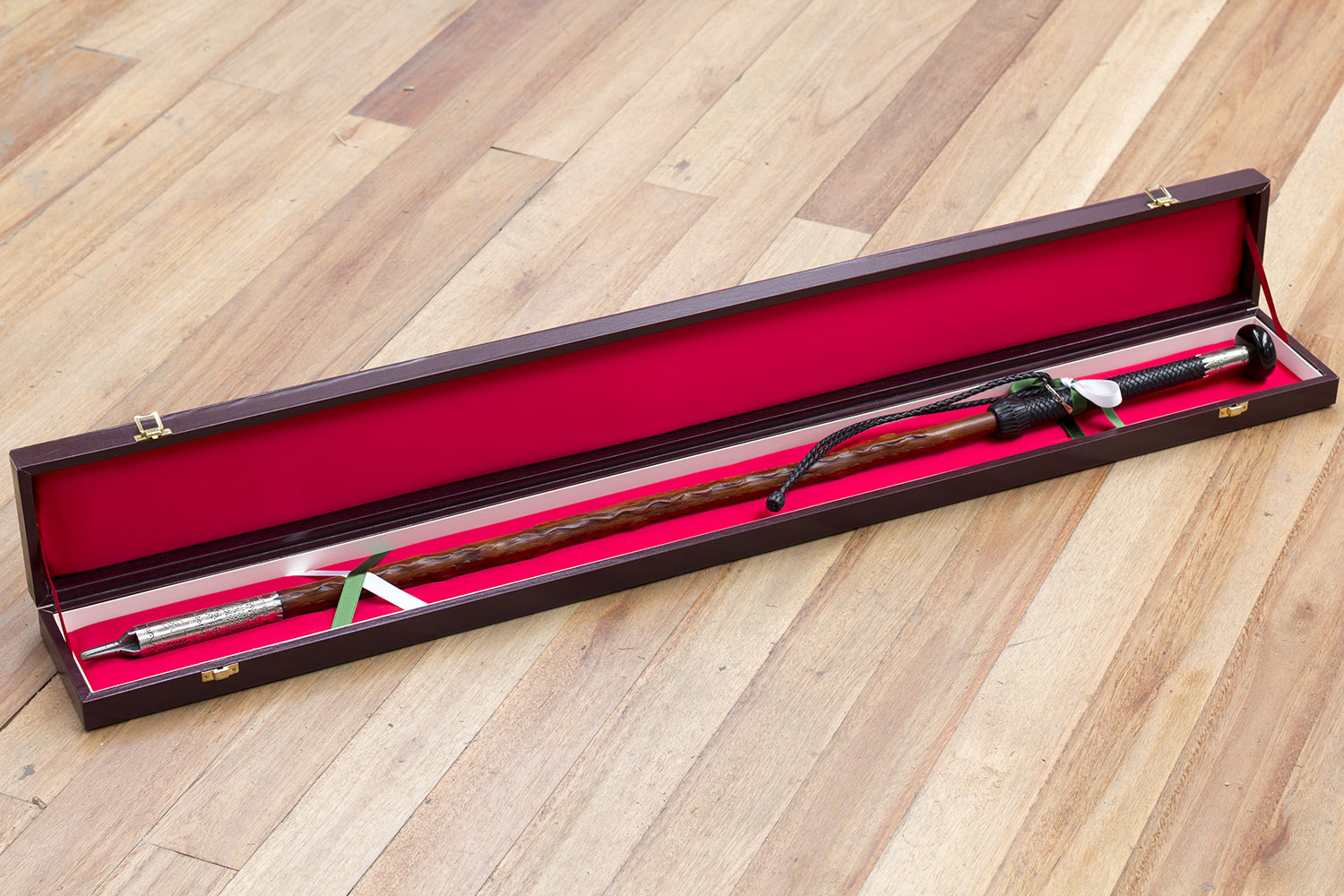





Beñat Alberdi gave up his first career to follow his family’s pledge to preserve this traditional craft. The makila – the Basque people’s walking stick – is the companion of shepherds on the paths, meadows and mountains of the Basque Country. It is a symbol of respect, authority and strength. Made entirely by hand from the wild medlar tree, it has a horn pommel, a goatskin covered handle, casings engraved with Basque motifs, a hidden spike in the handle and a tip that touches the ground, usually made of steel. A graduate in Business Studies from the University of Deusto, Beñat learned the secrets from an early age with his father, Iñaki, and his grandfather, Joxe. At 32, he left his job as an export manager to follow his family’s footsteps and dedicate himself to this craft. Now he leads the third generation of Alberdi artisans. Joxe Alberdi, a woodcarver, opened the workshop in 1948 on the ground floor of his father’s house in Irun. Today, Alberdi Makila is proud to be the only Spanish workshop that produces this popular object that has reached the hands of kings, popes, politicians and artists. Alberdi Makila is a benchmark in sustainability, tradition and the successful transmission of responsibility and commitment from one generation to the next.
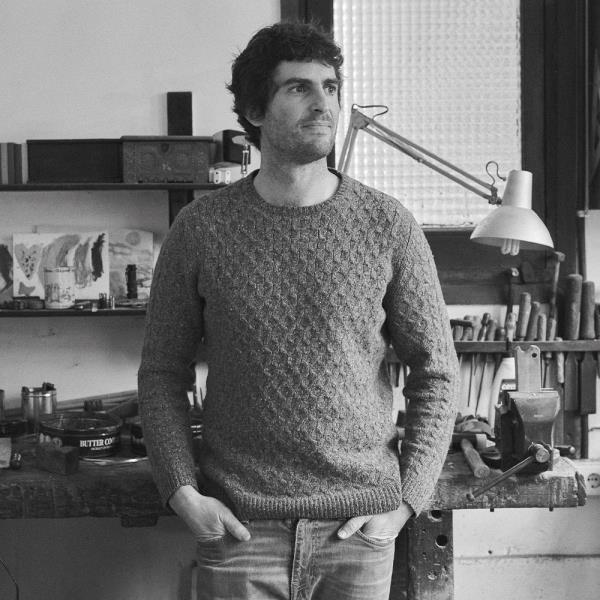
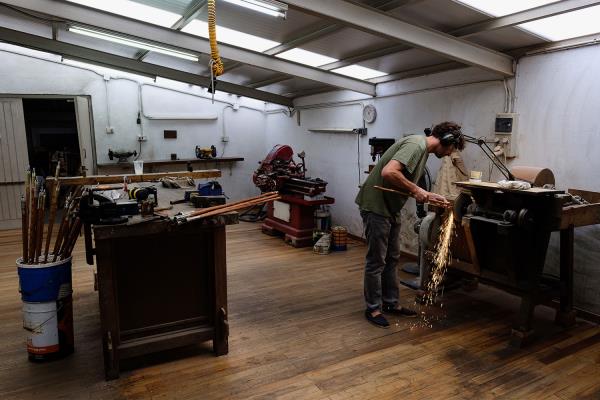
Beñat Alberdi